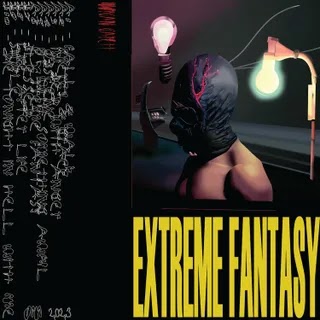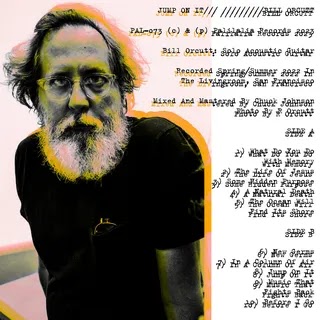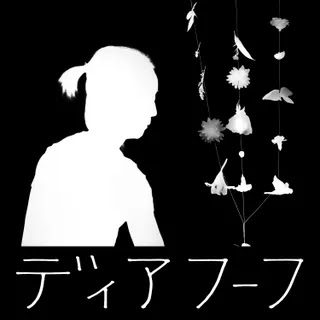The drums-and-electronics duo’s debut album is a gnarled hybrid of free improv, minimalist composition, and dance music that advances in fits and starts.
In Methods Body’s music, nothing feels fixed in place. The drums-and-electronics duo’s debut album is as slippery as the deck of a boat in a storm: Muscular rhythms in strange time signatures, microtonal prepared-piano riffs, droning feedback—they all careen back and forth, colliding, breaking into pieces. The result is a gnarled hybrid of free improv, minimalist composition, and dance music that advances in fits and starts, repetitive until it is not, knotty until it turns unexpectedly smooth.
Despite the size of their sound, Methods Body are just two people: drummer John Niekrasz and multi-instrumentalist Luke Wyland. Niekrasz studied percussion in Cuba and classical Hindustani tabla in India, and his CV boasts collaborations with everyone from drone titan Rhys Chatham to jazz pianist Marilyn Crispell to Joanna Newsom. Wyland was, until 2013, a core member of the group AU, whose fractured, brightly colored fusions of American minimalism and kaleidoscopic art rock anticipated some of Methods Body’s more song-like moments. Methods Body share a lineage with bands like Battles and Horse Lords, groups working at the intersection of rock and non-Western sonics; in places, they tap into the metallic shimmer of Indonesian gamelan, or the tube-driven glow of Konono N°1.
Though this is Methods Body’s first recorded work as a duo, they have been playing together since 2016, practicing five days a week in their shared studio and recording in remote locations: a saloon in the Mojave Desert, a cabin in the Oregon wilderness. But Methods Body feels less rooted in any particular sense of place than in the act of spontaneous creation itself; if there are landscapes here, they are represented as seen through the passenger window at 70 miles per hour, a blur of lines and vectors and splotchy color, morphing without end.
The album’s nine tracks are divided into two side-long suites. The A-side’s “Quiet Pt. 1 – They Didn’t Come Here” begins with layered reeds and sour-tuned plunks, then gallops unpredictably forward, moving in cellular fashion: Rhythmic, repetitive passages build and build, then pivot without warning. “Quiet Pt. 2 – Tell Us to Be” is a silvery reflecting pool of dissonant piano that launches into slow, skulking electric bass, half doom metal and half dubstep wobble. In “Quiet Pt. 3 – They Came Here,” a stomping, polyrhythmic groove gives way to ostinato pianos that sound like a junkyard Philip Glass. The first side comes to a head with “Quiet Pt. 5 – Anthem,” whose monster organ riffs channel ’70s prog beneath wild, guitar-like soloing. The music lumbers like beasts fighting, then pausing to suck air—moments of feral violence punctuated by seething calm.
If the A-side suite is driven by rhythm, the B-side’s four-part “Claimed Events” is an exploration of pure texture, in which piano and electronics rush like water over gravelly drums. Niekrasz favors sounds like resonant toms and the dry clatter of sticks against metal rims; Wyland wrangles plasticky, atonal sounds, bright sheets of tone that crinkle like cellophane. It’s rarely clear what the two men are doing at any given point, how much has been tracked live and how much overdubbed later—there are so many layers, it generally feels like more music than four hands are capable of producing. But the back-and-forth exchange between their playing makes clear that their music is a form of dialog.
In fact, both musicians say that language is an influence on their practice. Niekrasz, who got his MFA in poetry from the Iowa Writers’ Workshop, composes using a system he calls “syllabic notation,” translating the rhythms and tonalities of speech into drum patterns. Wyland, who stutters, finds inspiration in the cadences of broken speech. Methods Body only incorporates text in one song, but it’s a highlight of the album. In “Claimed Events Pt. 2 – Overheard,” the duo falls into what might be a funeral march—a slow, steady tom groove backed by mournful drones—that gradually gives way to an eerie chant from Wyland’s former bandmate Holland Andrews. The low, monotone chant hovers just on the far side of sense: “My friends, however, claimed events would identify them—but to overhear and accept only one month to prepare us in a very small room with rubble in one corner.” What looks dryly factual on the page, like a scrap of newspaper, takes on a weird, ritual sensibility in repetition—line breaks blurred, stresses sanded down, meaning dissolved into pure sonority. It is simultaneously the most calming and unsettling moment on an album in which all certainties feel up for grabs.
👉👇You May Also Like👇👌
View the original article here
















0 comments:
Post a Comment